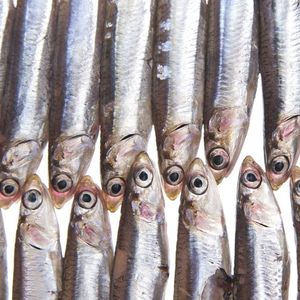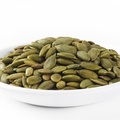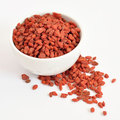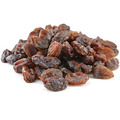A fat lot of good
The right type of fat in your diet can help protect against heart disease and Alzheimer's, ease arthritis and boost the nervous system

Here's a question you may not have asked yourself recently: "Am I getting enough fat?" Of course, we're not referring to the crisps, cakes and slatherings of butter-type fat - we're talking essential, healthy fats. Getting the right mix of these could boost the health of your heart, joints and mind, research shows. So, if you're of a Jack Sprat mentality, you could be missing out on some crucial health benefits.
We all know the importance of not eating too much saturated fat. But it's wrong to cut out fat altogether - in fact, we should be swapping saturated for unsaturated fats. These include monounsaturates - found in olive oil - and polyunsaturates, the healthiest type of fat there is. Polyunsaturates divide into two groups of ‘essential fatty acids' - omega-3 and omega-6. These fats aren't called ‘essential' for nothing. For starters, the body can't make them for itself, so it relies on the diet to provide them, and in the right quantity. And they're crucial for body maintenance, including keeping the nervous and immune systems ticking over, and for skin repair. The trouble is that many of us either are not incorporating enough of them into our diet, or we are not eating them in the right balance, experts say.
Know your omegas
Omega-3 is believed by many dieticians to help protect against heart disease by lowering blood pressure and reducing the risk of arteries hardening. In fact, the research around it is so good that some doctors now prescribe omega-3 supplements to help reduce blood fats. One study found that a diet rich in omega-3 cuts the risk of sudden cardiac death by nearly 50 per cent.
It's good for the mind, too. A recent Swedish study suggests a daily dose of omega-3 fats could halt Alzheimer's in its early stages. Getting adequate levels of omega-3 has also been found to reduce risk of depression. In addition to this, there's a stack of research to suggest that omega-3 can ease the pain of arthritis, and may help children with learning difficulties to concentrate better.So where can we get this wonder fat? Look no further than the sea, as it's found in abundance in the flesh of oily fish and the liver of white fish, such as cod (but check for the Marine Stewardship Council logo to ensure these are from sustainable sources). "Go for the smaller carnivorous fish, such as sardines, herring, trout, salmon and mackerel," advises David Nicolson, director of The Institute for Optimum Nutrition. "Longer-living ocean fish can accumulate toxins, such as mercury, during their lives." (Tinned tuna doesn't count as an oily fish, as its omega-3 oils are removed during the canning process.). The Government advises we eat at least one and as many as four portions of oily fish a week, and that women who are planning to have a baby, are pregnant or breast-feeding have up to two portions, as omega-3 is crucial in helping to build a baby's nervous system (but they should avoid marlin, shark and swordfish because of potential toxins).
For vegetarians, omega-3 fatty acids are also found in good quantities in hemp, flax and pumpkin seeds and oils, leafy green vegetables and walnuts, though these are shorter-chain omega-3s than those in oily fish, and some believe they may not have the same benefits.
"Omega-3 fats in their vegetable state have the potential to be converted by the body into a useful form," David Nicolson explains. "But when you eat oily fish, the fish has done the conversion for you."
Tipping the scales
Most of us aren't getting enough omega-3, but consuming adequate amounts of omega-6 isn't difficult, as it's found in a variety of foods, including sunflower, corn, grapeseed and soya oils. Research suggests omega-6 may help protect against heart disease by reducing levels of bad cholesterol. But achieving the right balance of omega-3 and omega-6 is "hugely important to health," says Dr Ann Walker, senior lecturer in human nutrition at The University of Reading.
Experts believe the ideal dietary ratio of omega-6 and omega-3 should be five to one, but in the West it's usually more like 15 to one. "There is increasing evidence that the wrong fatty acid balance leads to a range of diseases," Dr Walker says.
Put simply, too much omega-6 is linked to over-inflammation in the body, while omega-3 dampens this effect. The wrong balance may contribute to inflammatory health problems, including eczema, arthritis, psoriasis and colitis. "This imbalance may account, at least in part, for the increasing incidence of asthma and allergies in the UK," explains Judith Wills, nutritionist and author of The Food Bible (Quadrille, £10.99).
To get the right ratios, registered dietitian Lyndel Costain advises: "Eat at least two portions of fish a week, one of these being oily; swap omega-6-rich spreads and oils, such as sunflower or corn oil, for olive and rapeseed oil varieties; eat plenty of green leafy vegetables; and have a small handful of nuts and seeds most days of the week."
From good to bad
Omegas aside, monounsaturated fats are important for good health, too. Found in olive, groundnut and rapeseed oil, avocados and nuts, they're thought to raise levels of good cholesterol and lower levels of bad cholesterol, and so are linked with lower heart disease rates. But before you reach for a bottle of health-giving oil, a word of warning: be careful not to turn good fats into bad ones. "If you fry in an essential fat and it gets so hot it starts to smoke, you'll turn it into a trans fat, the sort of fat we need to steer clear of," David Nicolson says. Use olive oil for gentle frying - sweating onions, for example - and groundnut oil, which has a high smoke point, for stir-fries. And, as with all good things, remember that moderation is key. Fat, whether healthy or not, is highly calorific. If you slosh the olive oil too liberally over your lettuce, your waistband will soon protest.
Fat as foe
Saturated fat Too much saturated fat - found in meat and dairy foods - clogs up the arteries and increases the risk of heart disease. It will also detract from the important work of essential fats by competing for absorption.
Saturated fat is of no nutritional value, though there are benefits to be had from eating some natural foods containing it.
"Reduce saturated fat intake by choosing leaner cuts of meat and lower-fat dairy products, such as semi-skimmed milk," says Bridget Aisbitt from the British Nutrition Foundation. "Pastry products have lots of saturated fats, so keep these to a minimum."
Trans fat (often labelled as ‘hydrogenated fat') is another one to watch. It's made when vegetable oils are hydrogenated, or hardened, and is found in various processed foods, including certain manufactured biscuits and cakes (rarely in margarine these days). Trans fats are thought to increase levels of bad cholesterol and reduce levels of good cholesterol, making it a double no-no. One study found that a 2% increase in trans fats in the diet led to a 23% rise in the incidence of heart disease.
Time for an oil change
Rapeseed oil High in mono-unsaturates and doesn't burn easily which makes it good to use for frying.
Flaxseed oil Rich in omega-3, so it shouldn't be used for cooking, as omega-3 fats are destroyed by heat.
Walnut oil A good source of omega-3, it will lose its nutrient value if cooked - save for salads.
Hemp seed oil contains omega-3 and omega-6 in perfect ratio for our needs. Use it as a dressing.
Pumpkin seed oil is rich in both omegas and can be whizzed into smoothies or added to salads.










